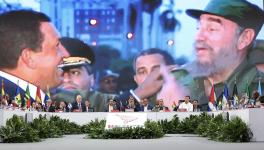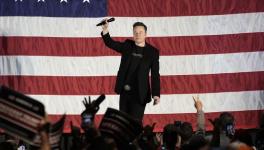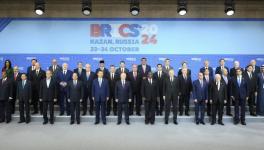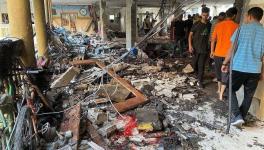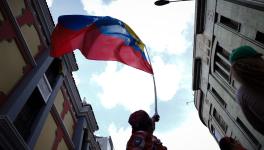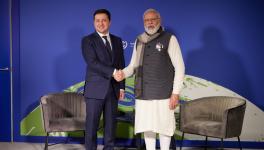Venezuela Polls and Future of Bolivarian Revolution
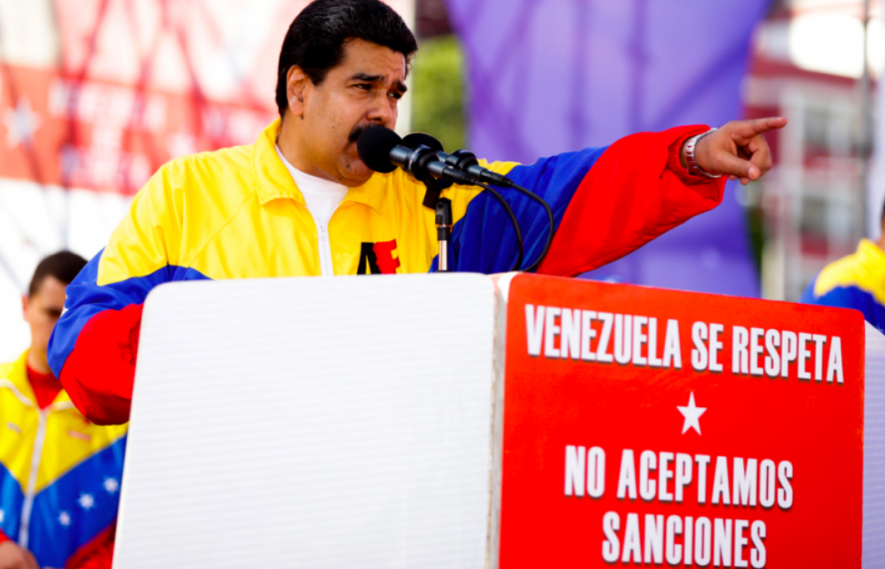
Nicolas Maduro (File Photo Credit: Venezuela Analysis)
Nicolás Maduro has been re-elected the President of Venezuela. He was elected with 51.2% of the vote while his principal opponent Edmundo González came second with 44.2% of the vote. This victory of President Maduro ensures that the Bolivarian Revolutionary process will continue while confronting many challenges.
Previously, Hugo Chávez was elected President in 1999, on the basis of a mass democratic movement, after Venezuela was ravaged by its being entrapped within the neoliberal project till then. This entrapment of Venezuela within the confines of the neoliberal project involved till 1999, Venezuela’s political economy (and its oil resources) operating within the parameters determined by US imperialist hegemony (that prevailed over metropolitan capital) with the junior partnership of the domestic bourgeoisie.
When President Chavez was elected in 1999, metropolitan capital (and their domestic junior partners) acting under US imperialist hegemony assumed that his movement could be co-opted by its incorporation into the neoliberal project. However when this did not transpire, metropolitan capital and its junior partners orchestrated a military coup in 2003 that was defeated by a popular uprising that also included the broad ranks of the armed forces.
During this experience of struggle, the Bolivarian Revolution political-organisationally transitioned from a quest for a third way (that was different from both the capitalist system and the socialist experiments of the 20th century) towards socialism of the 20th century. This was also the period when the Bolivarian Revolutionary process involved the unity of the Left and democratic forces in Venezuela which was undergirded by revolutionary organisation based on colectivos.
Over time, a substantial expansion of the welfare system (nutrition, health, education etc.), public control of the domestic oil industry, a fair degree of redistributive land reform, a burgeoning cooperative movement, advancement of gender justice and anti-racism and a foreign policy informed by strategic autonomy was put in place.
However, the continuing centrality of the oil industry for Venezuela, operating under the aegis of metropolitan capital, made its economy susceptible to the consequences of volatility in oil prices and traded oil volumes. Besides, the very complex international political economy circumstances within which the Bolivarian Revolutionary process was unfolding involved a persistence in new ways of the proliferation of the domestic bourgeoisie.
Having failed to dislodge the Bolivarian revolutionary process through the first military coup, metropolitan capital (and its junior partners) acting under US imperialist hegemony has increasingly sought to undermine Venezuela through unilateral sanctions that amounted to a virtual blockade (including illegal confiscation of foreign assets of Venezuela) along with other measures of political intimidation. These included, besides continuous armed attacks within Venezuela and military threats by the US military, unilateral recognition of a pro-imperialist leader as president of Venezuela (who later fled to the US after his political utility to metropolitan capital was exhausted) and the astonishing setting up of a parallel supreme court for Venezuela in the territory of the US.
Due to the economic war unleashed against Venezuela by metropolitan capital (acting under US imperialist hegemony), there has been a sharp drop in per capita income (and emigration) that is gradually being reversed. The existence of the welfare system along with the Bolivarian revolutionary process (within which it is embedded) has prevented the severity of the unilateral sanctions induced economics crisis from being transmitted into proportionate declines in the well-being of the working people.
The unilateral sanctions imposed by metropolitan capital (acting under US imperialist hegemony) involved, among other things, preventing foreign suppliers of oil industry related machinery and other inputs from repairing and upgrading oil production capacity. Something similar is being attempted with respect to semiconductor production in China but with less success since China is not only the biggest source of world demand for semiconductors but it is also a threshold economy for every significant innovation in the world.
Metropolitan capital acting under US imperialist hegemony through its economic war sought to squeeze Venezuela’s oil industry whereby its annual oil production fell by substantially more than half but with some recovery due to determined efforts by the government.
Something similar is being attempted with respect to Russia since 2022. But Russia is too significant for the world oil market and therefore metropolitan capital, for metropolitan capital to have the reduction of Russian oil exports as an objective. Instead, the attempt by metropolitan capital to try and enforce an oil price cap on Russian oil exports has been a resounding failure.
Ironically, this inability to squeeze Russian oil export income from the side of oil prices has compelled metropolitan capital (acting under US imperialist hegemony) to not apply an excessive squeeze on Venezuelan oil exports. This is the case since such an excessive squeeze on Venezuelan oil exports would increase world oil prices and therefore Russian oil export income. These setbacks to metropolitan capital reflect a changed strategic correlation of forces in contemporary international political economy.
Given this change in strategic correlation of forces in contemporary international political economy, there remains a question whether the Venezuelan government is adopting a sufficiently adequate policy to deal with the economic war unleashed by metropolitan capital (acting under US imperialist hegemony). Faced with unilateral sanctions by metropolitan capital (acting under US imperialist hegemony) on its oil industry and the economy more broadly, the Venezuelan government could have further enhanced its close relations with China and Russia that would have involved some short-term costs but would have resulted in enhancement of its long term prospects (to an extent that would have more than exceeded these short term costs).
It is also regrettable that the Bolivarian Revolutionary process has been unable to maintain the unity of the Left and democratic forces of Venezuela to the required extent. While it is painstaking and time-consuming, this process of continuous debate, discussion and power sharing among the different components of the Left and democratic forces will make the Bolivarian Revolutionary process more sustainable.
In the current round of presidential elections, the pro-imperialist opposition that is hegemonised by neo-fascism and its metropolitan capitalist curators sought to create the ground for disputing the results of the election by alleging in advance that the process was falsified.
After the results were announced, the pro-imperialist opposition claimed that the results were invalid and that they had actually obtained 70% of the votes. The pro-imperialist opposition, reminiscent of the neo-fascists’ vain attempts in Brazil after their defeat in the 2022 presidential elections, also made a thinly veiled appeal to the Venezuelan military to carry out a military coup to install them in power. However, this is unlikely to succeed not only because the working people have been politically mobilised but also because the rank and file of the Venezuelan armed forces have been fairly securely integrated into the Bolivarian Revolutionary process.
In the future, the Bolivarian revolutionary process will have to contend with a fresh round of disruption by metropolitan capital (acting under US imperialist hegemony) and their junior partners. Beyond contending with this disruption, the Bolivarian revolutionary process while remaining centred on a revolutionary participative mobilisation of the working people can strengthen itself by integrating into organisations, such as BRICS externally, while domestically re-engaging in a process of consolidation of Left and democratic forces.
The writer is Professor, Department of Economics, Satyawati College, University of Delhi. The views are personal.
Get the latest reports & analysis with people's perspective on Protests, movements & deep analytical videos, discussions of the current affairs in your Telegram app. Subscribe to NewsClick's Telegram channel & get Real-Time updates on stories, as they get published on our website.










